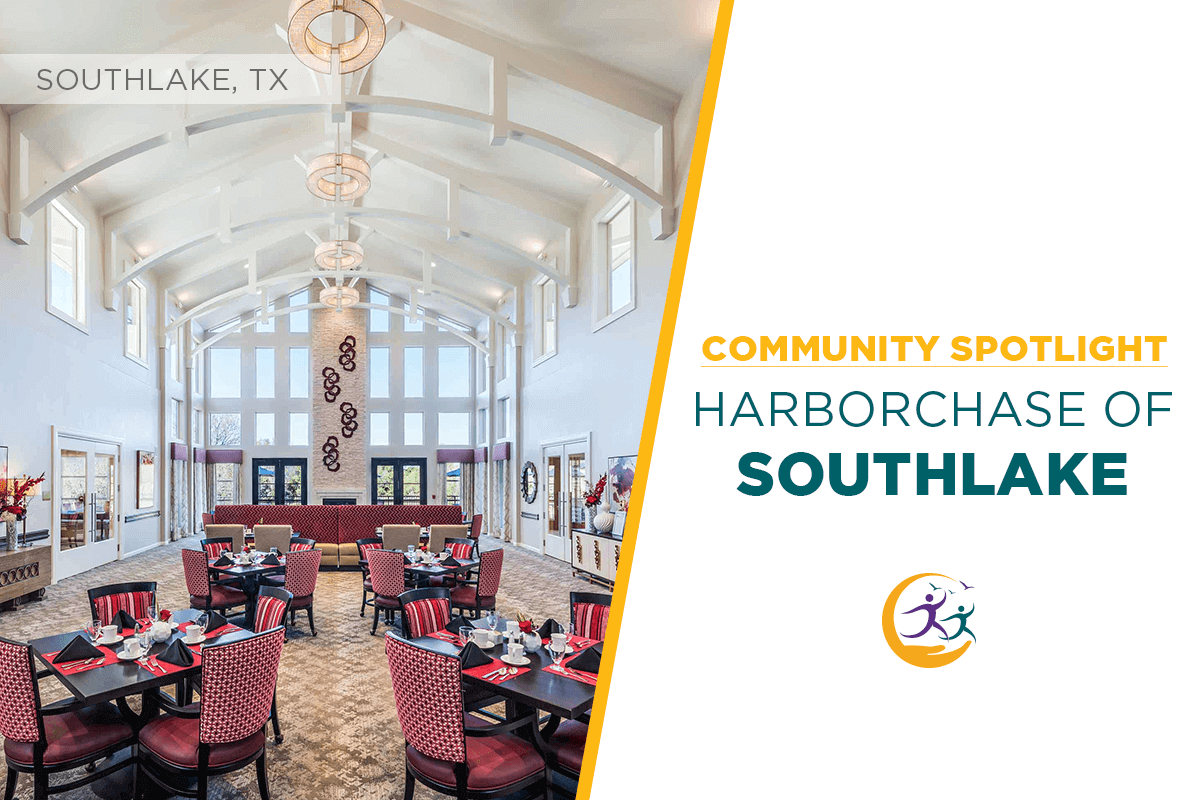ADLs and IADLs: What Are They?
Posted By HarborChase on April 1, 2021In our blogs and resources, we regularly mention ADLs: “Our communities support residents with ADLs,” “If an individual needs assistance with ADLs, it could be time to consider assisted living,” etc. Rarely do we take the time to explain what exactly ADLs are and how they are crucial in understanding senior health and wellness.
Both ADLs (Activities of Daily Living) and IADLs (Instrumental Activities of Daily Living) are terms used to convey how well an older adult is faring and whether or not they can, and should, live independently.
At HarborChase Senior Living, we indeed provide support and assistance with ADLs. Our independent living, assisted living, and memory care communities are dedicated to ensuring that each resident has the proper support needed to live safely and successfully.
To further help you on your senior living journey, we’re sharing more about the definitions and importance of these terms.
What Are Activities of Daily Living?
First coined in 1950 by Dr. Sidney Katz, the term activities of daily living describes the fundamental skills and basic tasks needed to independently care for oneself. These tasks include the essential physical functions required to live, including personal hygiene, dressing, and eating.
Sometimes, a person’s ability to accomplish ADLs on their own declines with age, leading to a poor, and even unsafe, quality of life. When this happens, assisted living and long-term care facilities can be a great option as they provide support with basic ADLs.
A person’s level of independence and competence in ADLs is typically determined by Dr. Katz’s Index of Independence in Activities of Daily Living. This spectrum analyzes functionality based on the dependence level for each task. According to Dr. Katz, the fundamental ADLs are:
- Ambulating (Walking/Mobility)
- Feeding
- Dressing
- Personal Hygiene
- Continence
- Toileting
The Index of Independence assesses each task individually and determines if a person is competent or needs assistance by using a scale. For example, a person will be evaluated on whether they can do the task entirely on their own, need some help, or need full support.
What Are Instrumental Activities of Daily Living?
Instrumental Activities of Daily Living (IADLs) are more complex than basic ADLs, requiring more critical thinking, organization, and tactical skills. While not necessary for fundamental living, IADLs enhance our quality of life and allow individuals to live successfully and independently.
Instrumental IADLs include:
- Transportation: The ability to use personal or public transportation to fulfill needs and obligations.
- Managing Finances: The ability to pay bills and manage other savings and assets.
- Shopping and Meal Preparation: The ability to shop for food and other items and prepare and serve meals.
- Medication Management: The ability to obtain medications and take them properly.
- Home Maintenance: The ability to handle home upkeep, maintenance, and house cleaning.
- Conducting Communication: The ability to communicate via phone or computer.
Whereas the inability to accomplish ADLs unaided may result in long-term care, when IADLs become challenging to manage alone, many people may opt to hire part-time help with cooking or cleaning.
Understanding Independence Using ADLs and IADLs
Understanding both ADLs and IADLs can help evaluate a parent or family member’s independence level and overall well-being. If they are beginning to have difficulty with some of the IADLs, you could consider hiring part-time help to manage more complicated tasks. If they are beginning to struggle with basic activities of daily living, though, it could be time to consider a senior living community.
How HarborChase Supports ADLs
Communities like HarborChase Senior Living are well-versed in supporting residents with day-to-day tasks and ADLs. In HarborChase communities, we offer as much or as little assistance as needed for residents to feel independent and successful. Our professional associates provide respectful and discreet care with tasks like grooming, dressing, mobility, and eating.
In addition, our resort-style communities create an environment that takes care of many IADLs. Our independent and assisted living services provide daily meals, housekeeping and maintenance services, scheduled transportation, and other services and amenities that enhance each resident’s quality of life and eliminate any need to worry about managing these tasks.
By assessing your family member’s efficiency, confidence, and capability to complete both ADLs and IADLS, you can have a more realistic understanding of their well-being and whether it’s time to consider a senior living community.
If you have any questions on how to access ADLs, how assisted living can help, or HarborChase Communities, we invite you to contact our team today.
Categories: Assisted Living, HarborChase Senior Living


